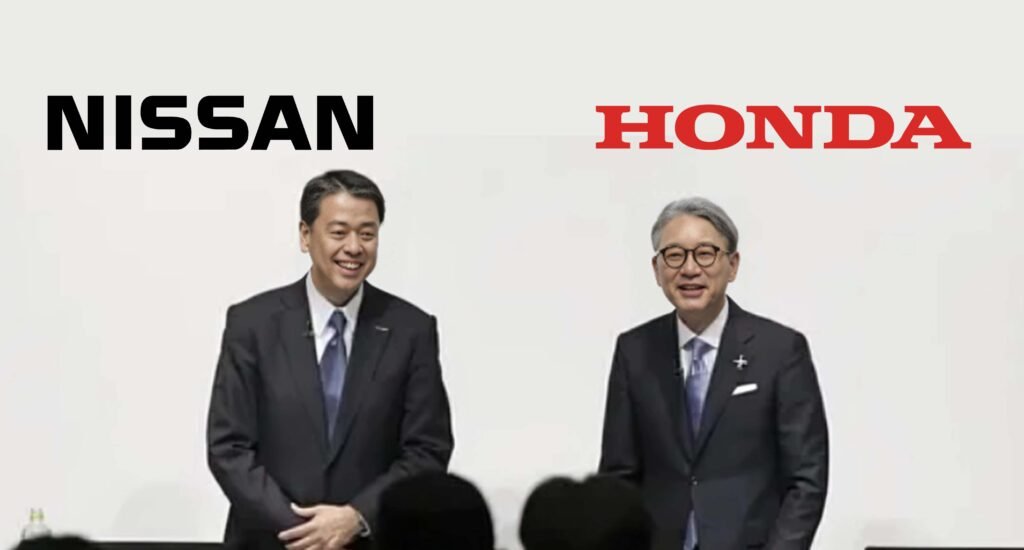Honda Nissan Merger: A $54 Billion Deal to Reshape the Auto Industry
- Abeera Marium Siddiqui
- December 19, 2024
- 2:32 pm
- 41
- Business

The Honda Nissan merger talks mark a pivotal moment in the global automotive landscape, potentially creating the third-largest auto group worldwide. With a combined valuation of $54 billion and an annual output of 7.4 million vehicles, the merger signifies a bold strategy to counter growing challenges from Tesla, Chinese EV makers like BYD, and shifting market demands.
Why the Honda Nissan Merger Matters
The merger, as first reported by the Nikkei newspaper, is not just about consolidation—it’s about survival. Both companies face intensifying competition in the electric vehicle (EV) market.
This deal appears to be more about bailing out Nissan, but Honda itself is not resting on its laurels.
Sanshiro Fukao
Nissan is grappling with slumping sales in China and the U.S. It recently announced a $2.6 billion cost-cutting plan, including reducing its global production capacity by 20%. Meanwhile, Honda, though better positioned financially, has seen its EV ventures struggle. Analysts believe a merger would allow the companies to share resources, cut costs, and compete more effectively in the EV space.
A Strategic Partnership
The merger also includes plans to involve Mitsubishi Motors, where Nissan holds a 24% stake. This would make it one of the world’s largest auto groups. This new entity would bolster its position as a strong domestic rival to Toyota, which dominates Japan’s auto market.
Constructive rivalry with Toyota is a positive for the rather stagnating Japanese car industry when it must compete with Chinese automakers, Tesla, and others.
Seiji Sugiura
The proposed plan involves setting up a holding company under which Honda, Nissan, and potentially Mitsubishi would operate. This structure aims to streamline operations and foster deeper collaboration on EV development, an area where both companies have faced challenges.
Addressing Global Pressures
The Honda Nissan merger comes amid significant external pressures. The Trump administration has threatened hefty tariffs on vehicles imported from Mexico to the U.S. This move could severely impact both companies’ operations. Additionally, the global EV market is in the midst of a price war led by Tesla and BYD, putting immense pressure on legacy automakers to innovate and remain competitive.
Challenges of Integration
Despite the potential benefits, merging two automotive giants is no easy task. Honda’s technology-centric culture, known for its strength in powertrains, differs significantly from Nissan’s current financial and strategic struggles.
Honda has a unique, technology-centric culture with strengths in powertrains, so there should be some internal resistance to the merger with Nissan.
Tang Jin
Differences in corporate culture and strategies could pose hurdles to achieving meaningful synergies. “In our view, there have been few instances where mergers and alliances between major automakers have led to significant benefits,” noted S&P Global Ratings in a recent report.
The Road Ahead
If successful, the Honda Nissan merger could reshape the global auto industry by creating a formidable player capable of tackling the challenges posed by Tesla and Chinese automakers. This move underscores the urgency for legacy automakers to adapt to the rapidly evolving EV market and geopolitical uncertainties.
While details such as the stakes and structure of the holding company are yet to be finalized, this proposed merger signifies a bold step toward innovation in the face of mounting competition.



